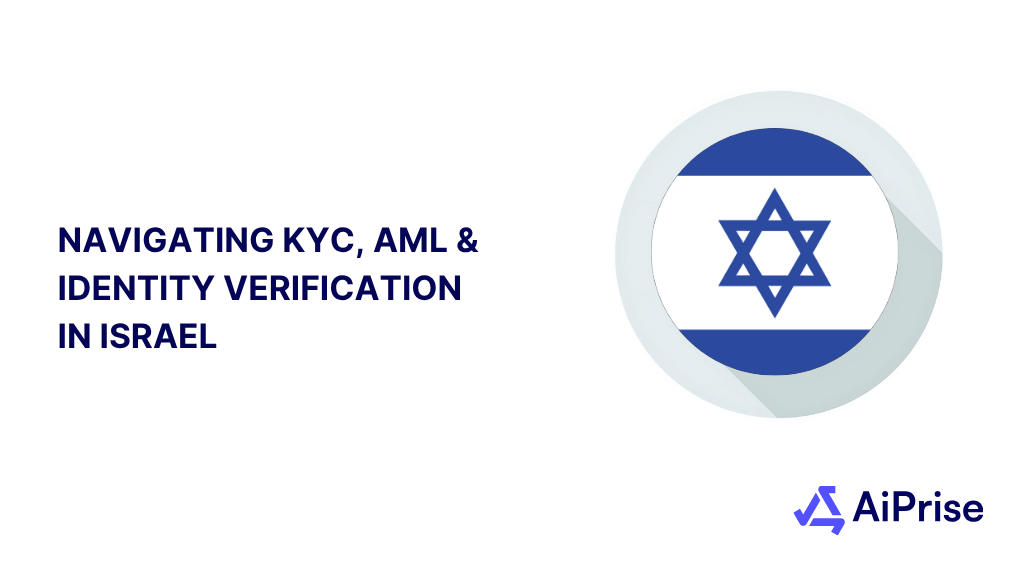AiPrise
15 mins read
June 6, 2025
Navigating KYC, AML and Identity Verification in India

Key Takeaways










In recent years, India has become a hub for financial activity and innovation. However, with this growth, the need for robust KYC (Know Your Customer) and AML (Anti-Money Laundering) practices has never been more critical.
In 2021, the Reserve Bank of India (RBI) penalised a major bank with ₹1 crore (approx. $135,000) for failing to adhere to the required KYC norms, highlighting the growing emphasis on compliance.
Given the dynamic nature of India’s financial industry, businesses must implement effective measures to meet these stringent regulations and protect themselves from financial crime.
This blog examines the intricacies of KYC, AML, and identity verification in India, as well as how businesses can ensure compliance in a digital-first economy.
Evolution of KYC and AML in India
The Reserve Bank of India (RBI) introduced KYC guidelines in 2002 to combat money laundering, terrorist financing, and identity theft. These guidelines mandated that financial institutions verify the identity of their customers before initiating any financial transactions.
Over the years, the KYC process has evolved from manual documentation to digital methods, including eKYC and video KYC, enhancing efficiency and user experience.
In parallel, the Prevention of Money Laundering Act (PMLA) was enacted in 2002 and came into effect in 2005. This Act established a comprehensive framework to prevent and control money laundering activities in India.
The Financial Intelligence Unit – India (FIU-IND) was set up to oversee and implement AML measures, ensuring that financial institutions report suspicious transactions and maintain records as per the stipulated guidelines.
Understanding KYC and AML in India
India's regulatory environment for KYC (Know Your Customer) and AML (Anti-Money Laundering) compliance is shaped by a range of laws and regulatory bodies. These work together to combat financial crimes and maintain the integrity of the financial system.
Here are the key regulatory bodies and frameworks involved in KYC and AML in India:
- Prevention of Money Laundering Act (PMLA), 2002 and PML Rules, 2005: The PMLA is the foundation of India’s AML regime. It mandates financial institutions to implement strong KYC and due diligence measures to detect and prevent money laundering. The PML Rules provide detailed procedural guidelines for compliance.
- Reserve Bank of India (RBI): The central bank issues comprehensive KYC and AML guidelines for banks and non-banking financial companies, including the updated RBI KYC Master Directions.
- Securities and Exchange Board of India (SEBI): Regulates KYC and AML for the securities market, including stockbrokers, mutual funds, and market intermediaries to prevent market abuse.
- Insurance Regulatory and Development Authority of India (IRDAI): Oversees AML and KYC compliance for insurance companies and intermediaries, ensuring the sector adheres to regulatory standards.
- Financial Intelligence Unit – India (FIU-IND): Responsible for receiving, analyzing, and disseminating reports of suspicious financial transactions to help prevent money laundering and terrorist financing.
Now that we’ve outlined India’s regulatory framework, let’s explore the specific KYC procedures and requirements businesses need to follow to stay compliant.
KYC Procedures and Requirements
In India, KYC (Know Your Customer) procedures are a crucial part of the regulatory framework. They ensure businesses can verify their customers' identities and reduce the risk of financial crimes.
The Reserve Bank of India (RBI) and other regulatory bodies have laid out clear guidelines that businesses must follow for customer verification, making it easier to combat fraud, money laundering, and terrorism financing.
Basic KYC Procedures:
- Customer Identification: Businesses must verify the identity of customers by collecting the following information:
- Name
- Date of Birth
- Address
- Nationality
Additionally, businesses must obtain a government-issued identification number, such as an Aadhaar, PAN, or passport number, for further verification.
- Address Verification: Required documents like utility bills, bank statements, or government-issued IDs for address confirmation.
- Risk Assessment: Assess the customer’s risk level based on their background and transaction behavior.
- Record-Keeping: Retain KYC records for a minimum of five years to comply with regulatory requirements.
Enhanced Due Diligence (EDD):
Additional checks are necessary for higher-risk customers, such as politically exposed persons (PEPs), to verify the source of funds and monitor ongoing transactions.
Now that we’ve covered the essential KYC procedures, let’s look at the AML regulations in India and explore how businesses can ensure compliance with these laws to effectively fight financial crimes.
Key AML Regulatory Requirements in India

Now, let’s understand the key components of identity verification and how businesses can ensure they are meeting regulatory standards.
Identity Verification in India
Identity verification is a cornerstone of KYC and AML compliance in India. Accurate identity verification helps businesses prevent fraud, ensure the legitimacy of their customers, and comply with regulatory requirements. With the rapid adoption of digital services in India, identity verification has evolved, using both traditional and modern methods.
Several government-issued identity documents are commonly accepted for verification purposes in India, including:
- Aadhaar Card: The Aadhaar card, India’s unique identification system, is widely used for both identity and address verification. It is mandatory for many services, including opening bank accounts and filing taxes.
- PAN Card: The Permanent Account Number (PAN) card is used primarily for tax purposes but also plays a crucial role in verifying individuals' identities in financial transactions, such as investments or opening a business account.
- Passport: For foreign nationals or travelers, a passport is the primary document for identity verification. It is commonly used for cross-border transactions and as a government-issued proof of identity.
- Voter ID and Driver’s License: These documents are frequently used for identity verification in India, especially for non-residents and those without Aadhaar or PAN.
Digital and Biometric Verification
With India’s push towards digital financial services, e-KYC (electronic Know Your Customer) has become the preferred method for many financial institutions. Aadhaar-based e-KYC is widely used for online account openings, especially in the banking and fintech sectors.
Additionally, biometric verification (such as fingerprint and facial recognition) is gaining traction. This technology enhances security, provides seamless customer onboarding, and helps eliminate fraud.
By combining traditional documents with digital methods, businesses can ensure a higher level of verification accuracy while complying with India’s regulatory requirements.
Let’s now explore how businesses can manage risks effectively and fulfill their reporting obligations to stay compliant with Indian regulations.
Risk Management and Reporting Obligations
In India, businesses must effectively manage risks and fulfill reporting obligations to stay compliant with KYC and AML regulations. Proper risk management helps prevent fraud and money laundering, while timely reporting ensures that suspicious activities are flagged for investigation.

As businesses evolve to meet regulatory demands, the digital revolution is shaping how KYC and AML processes are handled. Let’s explore how technology is helping streamline compliance and tackle emerging challenges in the financial sector.
Impact of Digital and Fintech Advancements
India is witnessing a rapid digital transformation in its financial sector, with advancements in fintech and digital banking reshaping how businesses approach KYC, AML, and identity verification. The growing reliance on online platforms and mobile banking has introduced new opportunities and challenges in compliance.
Several key technologies are driving this transformation, enabling faster, more secure, and scalable compliance processes:
- e-KYC (Electronic Know Your Customer): e-KYC allows businesses to complete the customer verification process online using digital identities like Aadhaar. This streamlines onboarding, reduces paperwork, and accelerates the verification process, making it ideal for digital banks and fintech companies.
- Biometric Verification: Facial recognition and fingerprint scanning are becoming essential tools in verifying identities, especially in remote and digital services. These technologies enhance security, reduce fraud, and provide a smoother user experience.
- AI and Machine Learning for AML: Artificial Intelligence (AI) and Machine Learning (ML) are increasingly being used to detect suspicious transactions in real-time. AI models can analyze large datasets, identify patterns, and flag high-risk activities that may go unnoticed with manual monitoring.
- Blockchain for Secure Data Management: Blockchain is being explored for securely storing KYC data, making it tamper-proof and easily accessible for audits. It can also ensure greater transparency in the financial system by providing an immutable record of transactions.
Benefits of Technological Advancements
By adopting these innovations, businesses can unlock several key benefits that strengthen their compliance programs while improving operational performance:
- Increased Efficiency: Automation of verification and monitoring processes reduces manual work and speeds up compliance workflows.
- Enhanced Security: Advanced authentication methods and secure data storage protect sensitive customer information from breaches and fraud.
- Greater Scalability: Digital solutions enable businesses to easily expand their KYC and AML operations to serve more customers as they grow, especially in the fintech sector.
As technology continues to play a pivotal role in KYC and AML compliance, collaboration across borders is becoming increasingly essential. Let’s now look at how cross-border cooperation and information sharing are enhancing India’s fight against financial crime.
Cross-Border Collaboration and Information Sharing
In today’s globalized financial landscape, combating financial crime requires international cooperation. India actively collaborates with global regulatory bodies and shares financial intelligence to help detect and prevent money laundering and terrorist financing. Cross-border collaboration allows businesses to stay compliant with international standards and ensure that illicit activities are tracked and stopped before they can spread.
Key Areas of Cross-Border Collaboration
Cross-border collaboration is crucial in strengthening KYC and AML efforts. These collaborations enable countries to share critical information and coordinate actions. These partnerships help detect and prevent financial crimes that often span multiple jurisdictions.
- Financial Action Task Force (FATF) Compliance: India aligns its AML regulations with FATF standards, which ensure that financial institutions worldwide adhere to the same rigorous requirements to prevent financial crimes.
- Information Sharing Networks: India collaborates with international agencies, such as Interpol and the Egmont Group, to exchange financial intelligence and share information about suspicious activities, sanctions violations, and high-risk individuals.
- International Sanctions Compliance: Indian businesses must screen customers against global sanctions lists, including those from the United Nations, European Union, and OFAC. This cross-border compliance ensures that businesses do not engage in transactions with parties involved in illegal activities or terrorism.
- Cross-Border Regulatory Bodies: India also engages with global regulators like the European Central Bank (ECB) and the US Securities and Exchange Commission (SEC) to ensure that financial institutions follow international best practices in combating money laundering and terrorism financing.
As the world becomes more interconnected, businesses in India must implement technological solutions to stay ahead of compliance requirements. Let's explore how AiPrise can help businesses streamline their KYC, AML, and identity verification processes in India.
AiPrise Solutions for KYC, AML, and Identity Verification in India
AiPrise offers an intuitive platform that simplifies KYC, AML, and identity verification for businesses in India. With innovative tools and global data integration, AiPrise helps businesses stay compliant, secure, and efficient.

AiPrise’s platform offers several key features designed to simplify KYC, AML, and identity verification for businesses in India, including:
- Global Data Access: AiPrise connects businesses to over 100 global sources, ensuring comprehensive due diligence and faster customer verification.
- AI-Powered Risk Detection: Real-time analysis powered by AI and machine learning helps identify suspicious activities quickly and accurately.
- Biometric Verification: Facial recognition and fingerprint scanning enhance security and ensure reliable identity verification.
- Seamless Integration: AiPrise integrates effortlessly into your existing workflows, automating compliance tasks and reducing manual effort.
- Automated Reporting and Monitoring: AiPrise automates transaction monitoring and reporting to ensure timely compliance with regulatory requirements.
AiPrise enables businesses in India to meet KYC and AML regulations with ease while reducing the risk of fraud.
Conclusion
Navigating KYC, AML, and identity verification regulations in India is essential for businesses to protect themselves from financial crimes and meet regulatory requirements. As the regulatory landscape evolves, businesses must adopt efficient, innovative solutions to stay compliant and secure.
With financial crimes becoming increasingly complex and digital and fintech services rising, solutions like AiPrise can help businesses streamline their compliance efforts and mitigate risks, ensuring that they remain ahead of the curve in India’s dynamic financial ecosystem.
Ready to simplify your compliance processes in India? Book a Demo with AiPrise today and discover how our platform can help you stay secure and compliant in India's evolving market.
Frequently Asked Questions
Q1. What documents are required for KYC in India?
A. Typically, a proof of identity (such as an Aadhaar, PAN card, or passport) and a proof of address (like a utility bill or bank statement) are required.
Q2. How does eKYC differ from traditional KYC?
A. eKYC is an electronic method of verifying identity using digital platforms, making the process faster and more efficient compared to traditional paper-based methods.
Q3. Is video KYC legally accepted in India?
A. Yes, the RBI has approved video KYC as a valid method for customer verification, provided it adheres to the prescribed guidelines.
Q4. What is the role of FIU-IND?
A. The Financial Intelligence Unit – India (FIU-IND) is responsible for receiving, analyzing, and disseminating information related to suspicious financial transactions to combat money laundering and terrorist financing.
Q5. How often should KYC be updated?
A. KYC should be periodically updated as per the risk categorization of the customer: every 6-12 months for high-risk, 12-24 months for medium-risk, and 10 years24-36 months for low-risk customers.
You might want to read these...

AiPrise’s data coverage and AI agents were the deciding factors for us. They’ve made our onboarding 80% faster. It is also a very intuitive platform.





Speed Up Your Compliance by 10x
Automate your compliance processes with AiPrise and focus on growing your business.




.jpg)




















.jpeg)







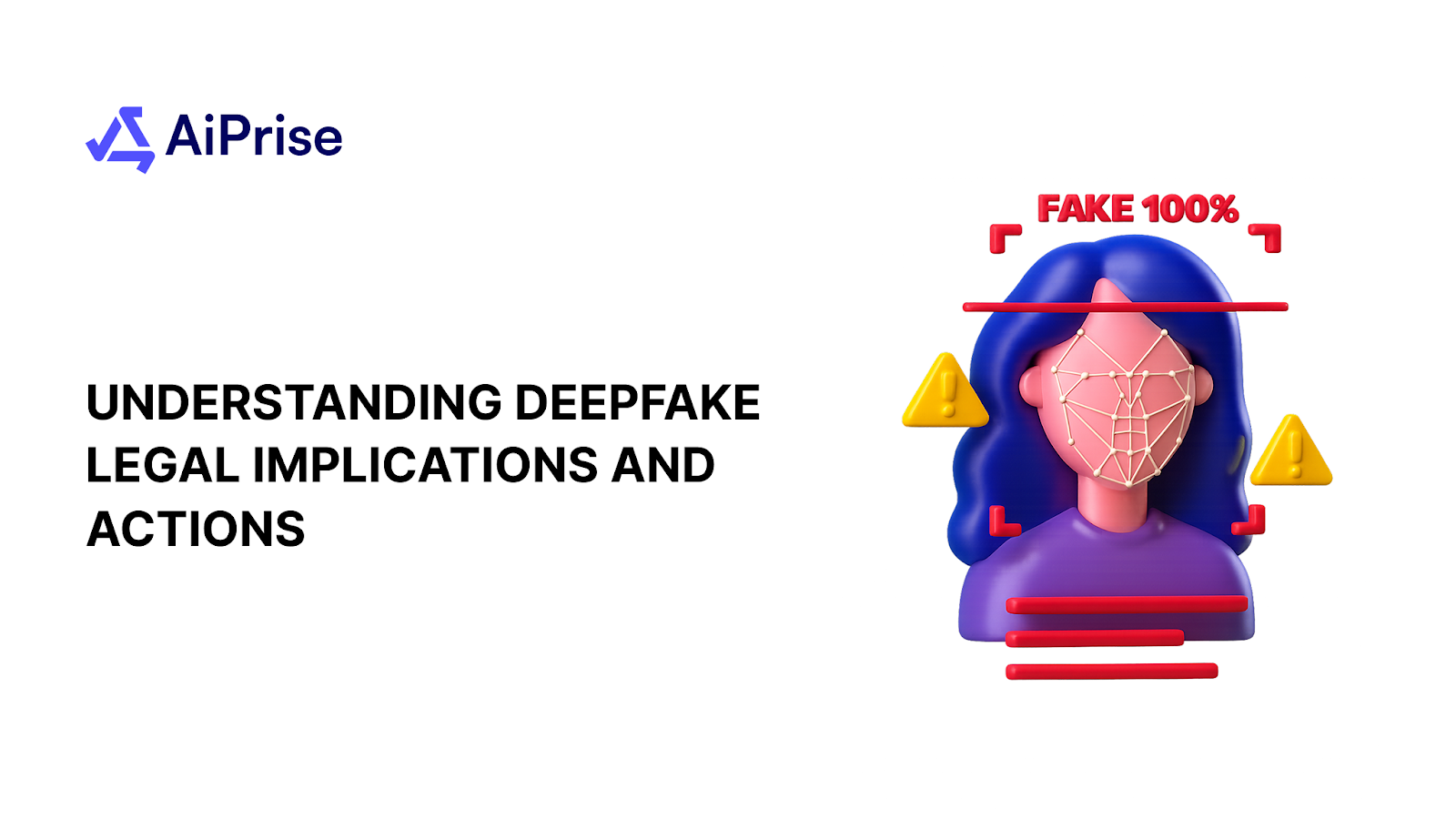
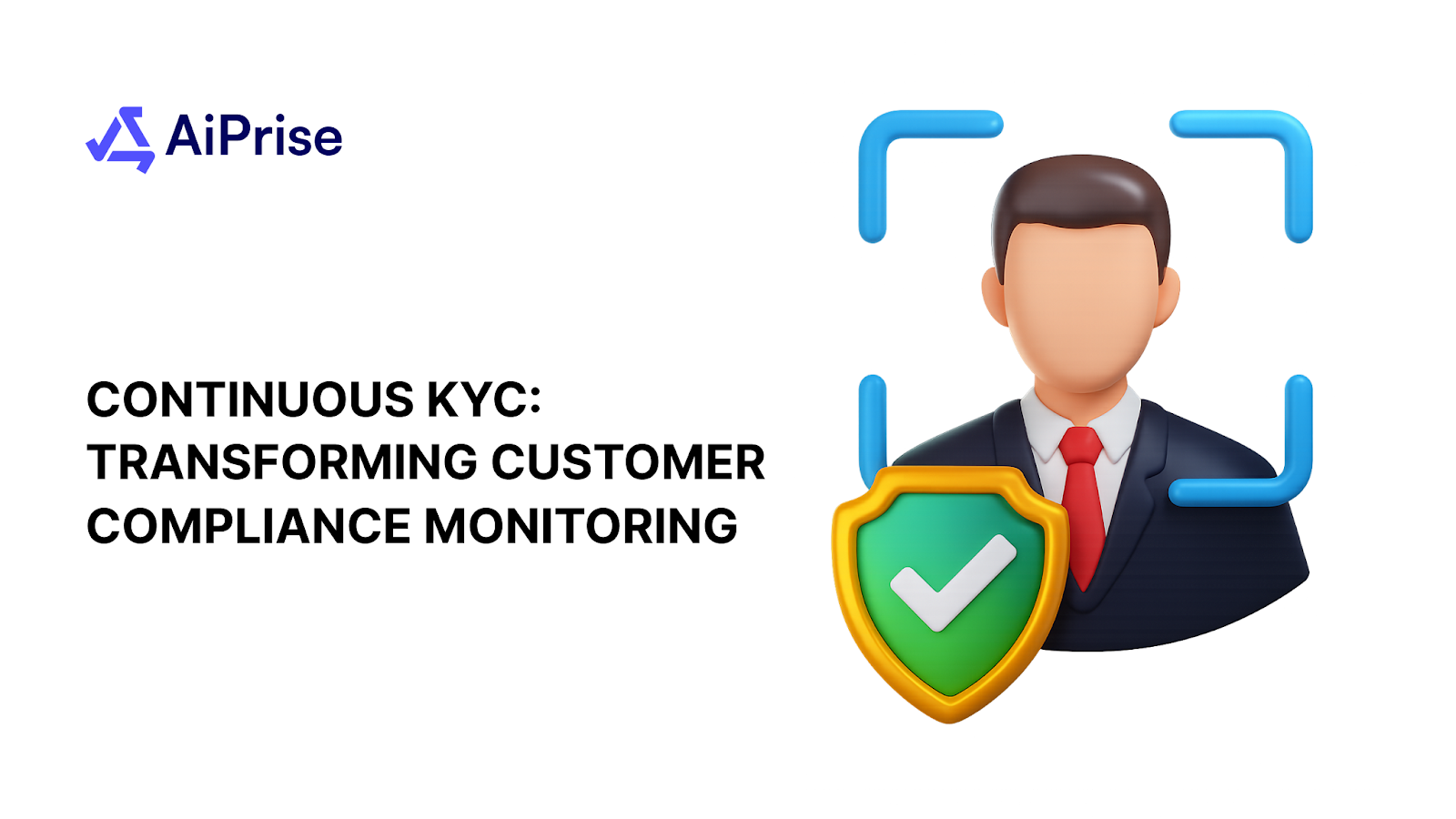



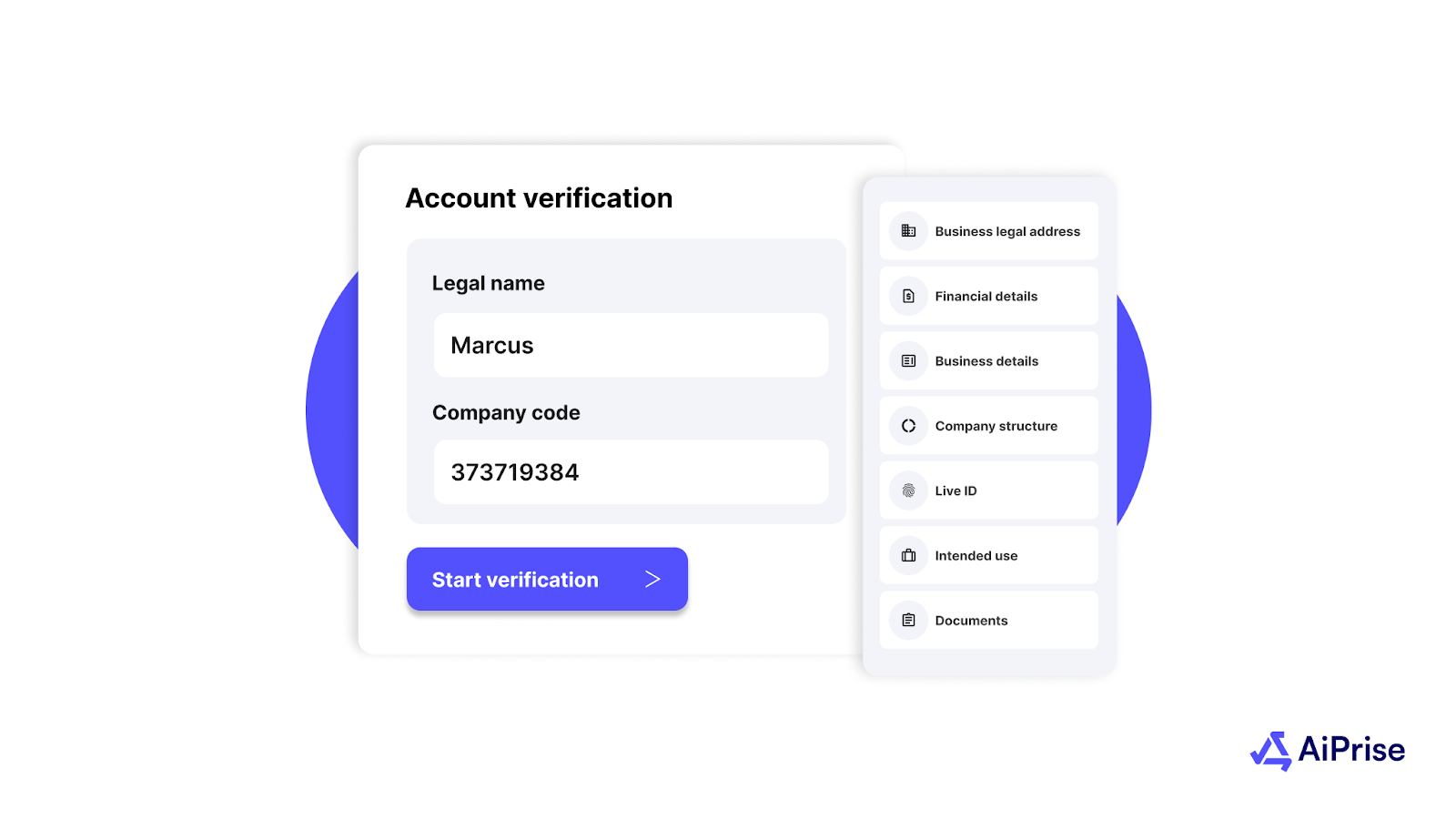

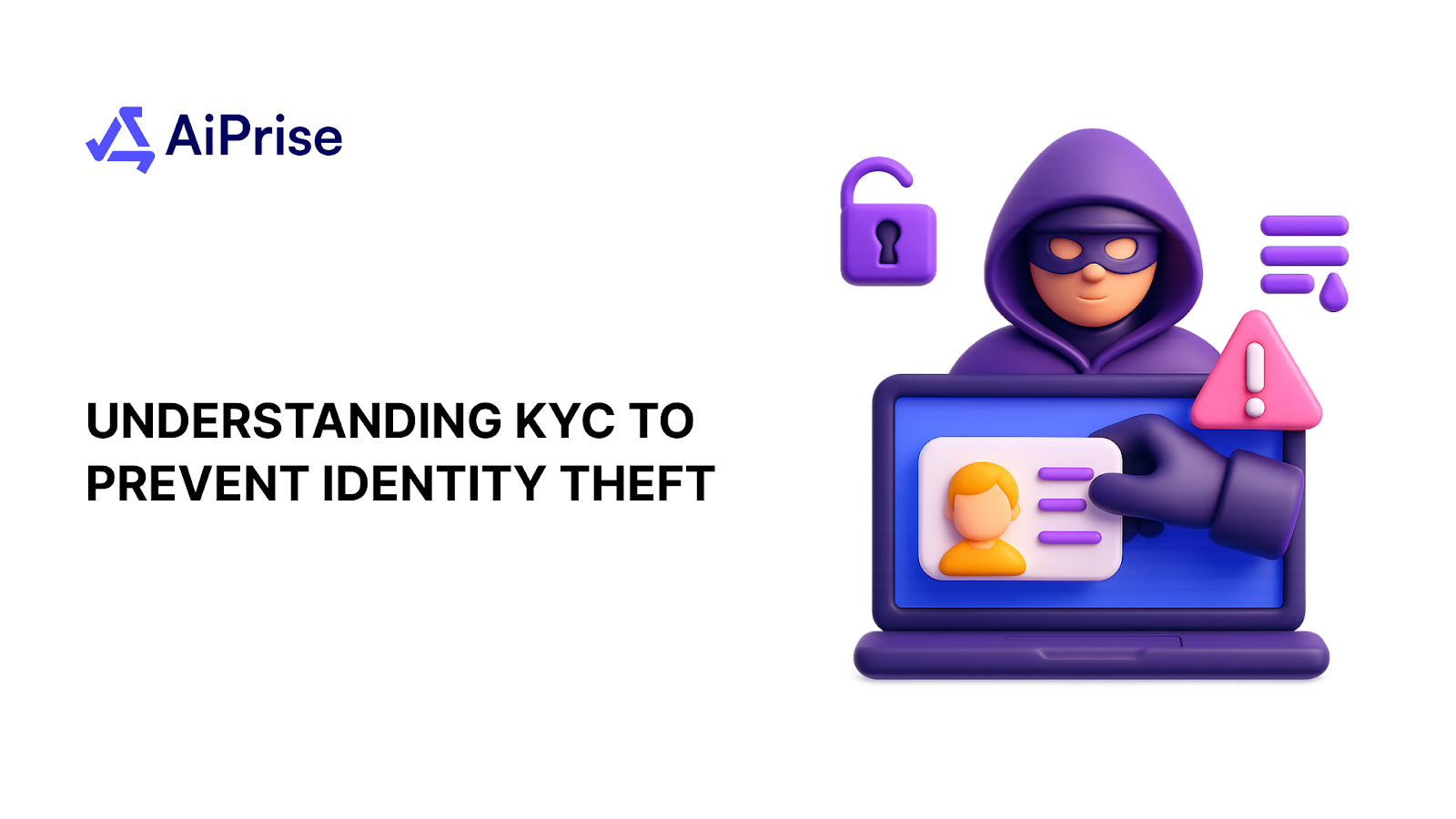
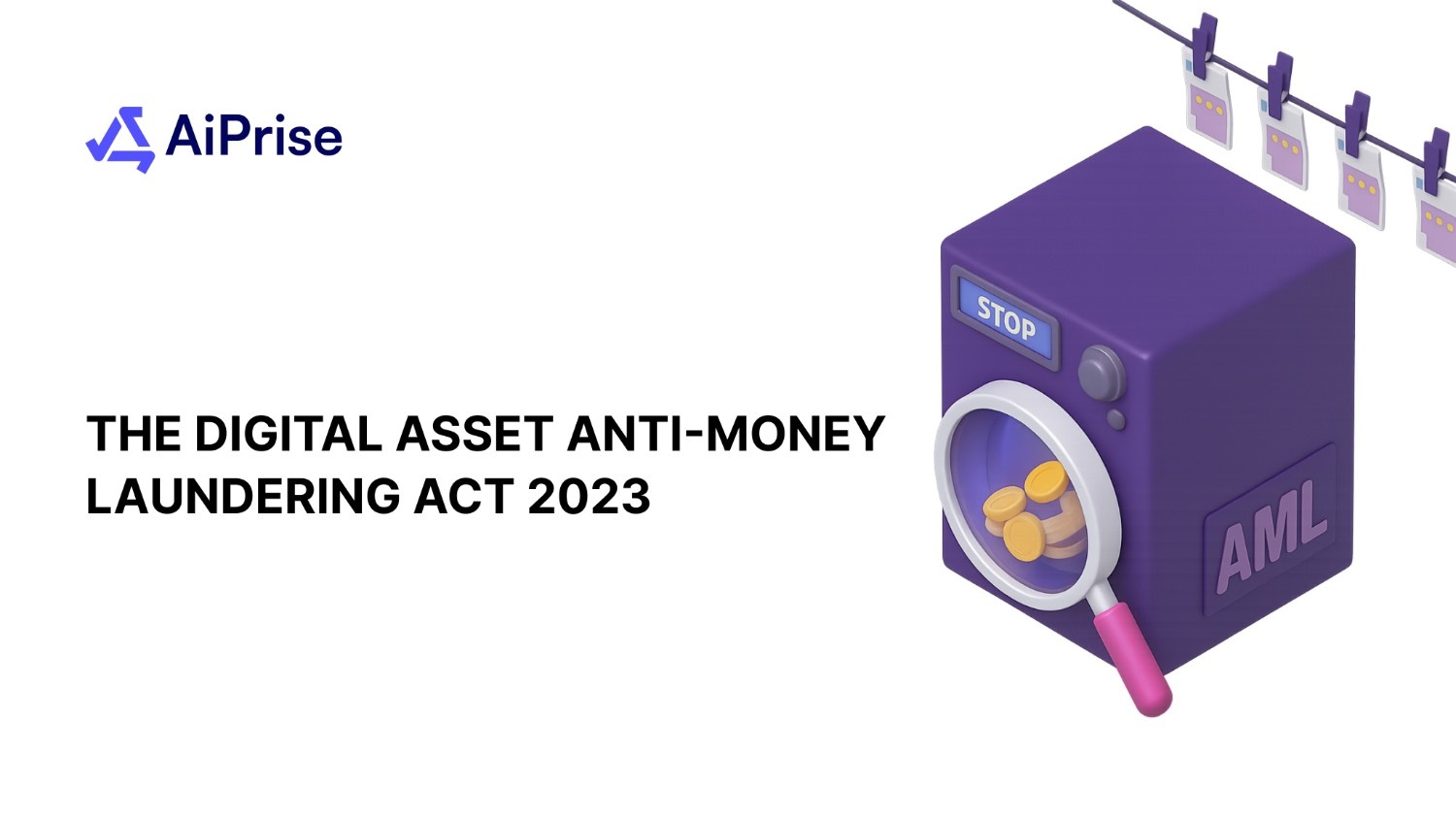


.png)
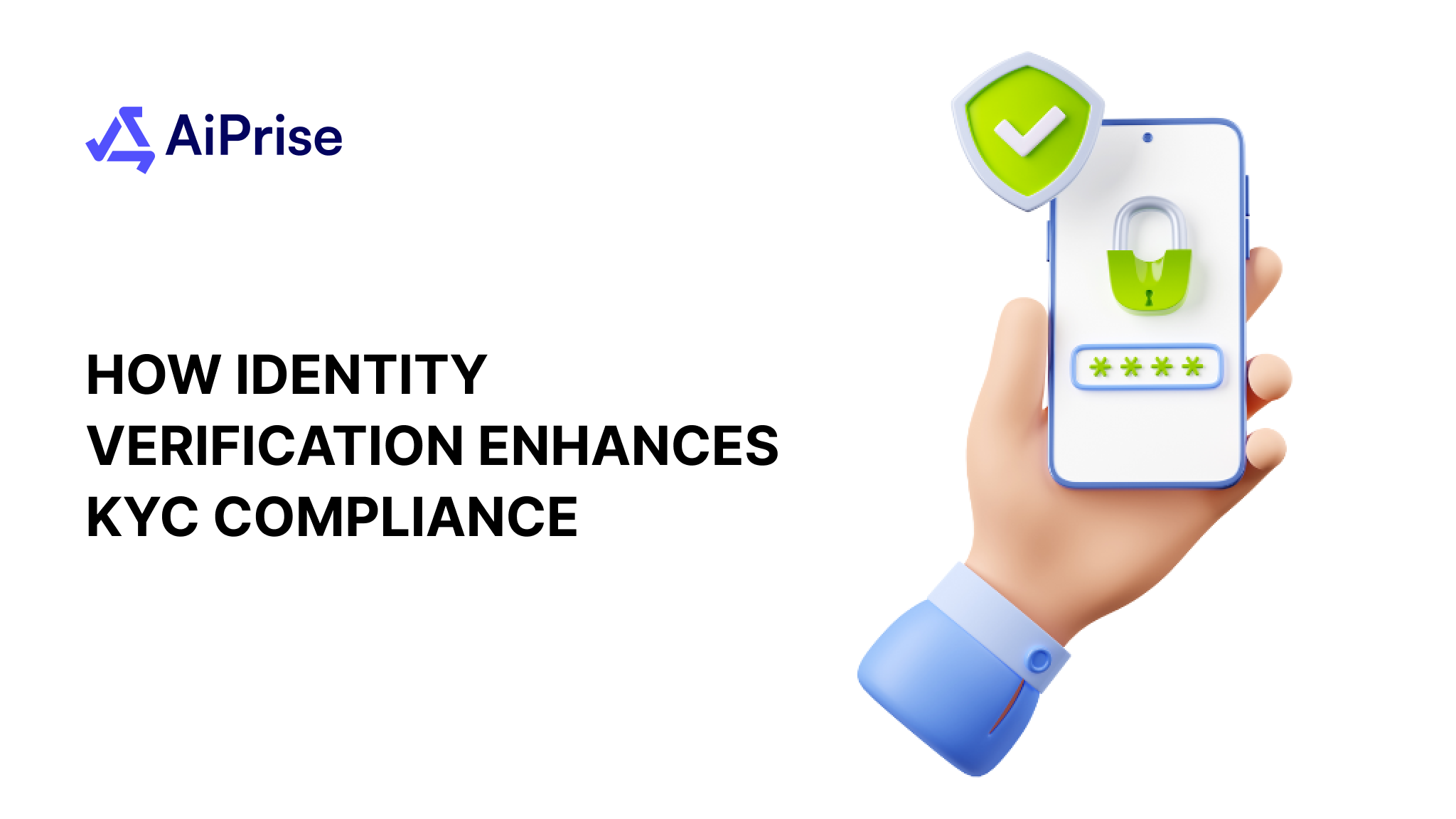
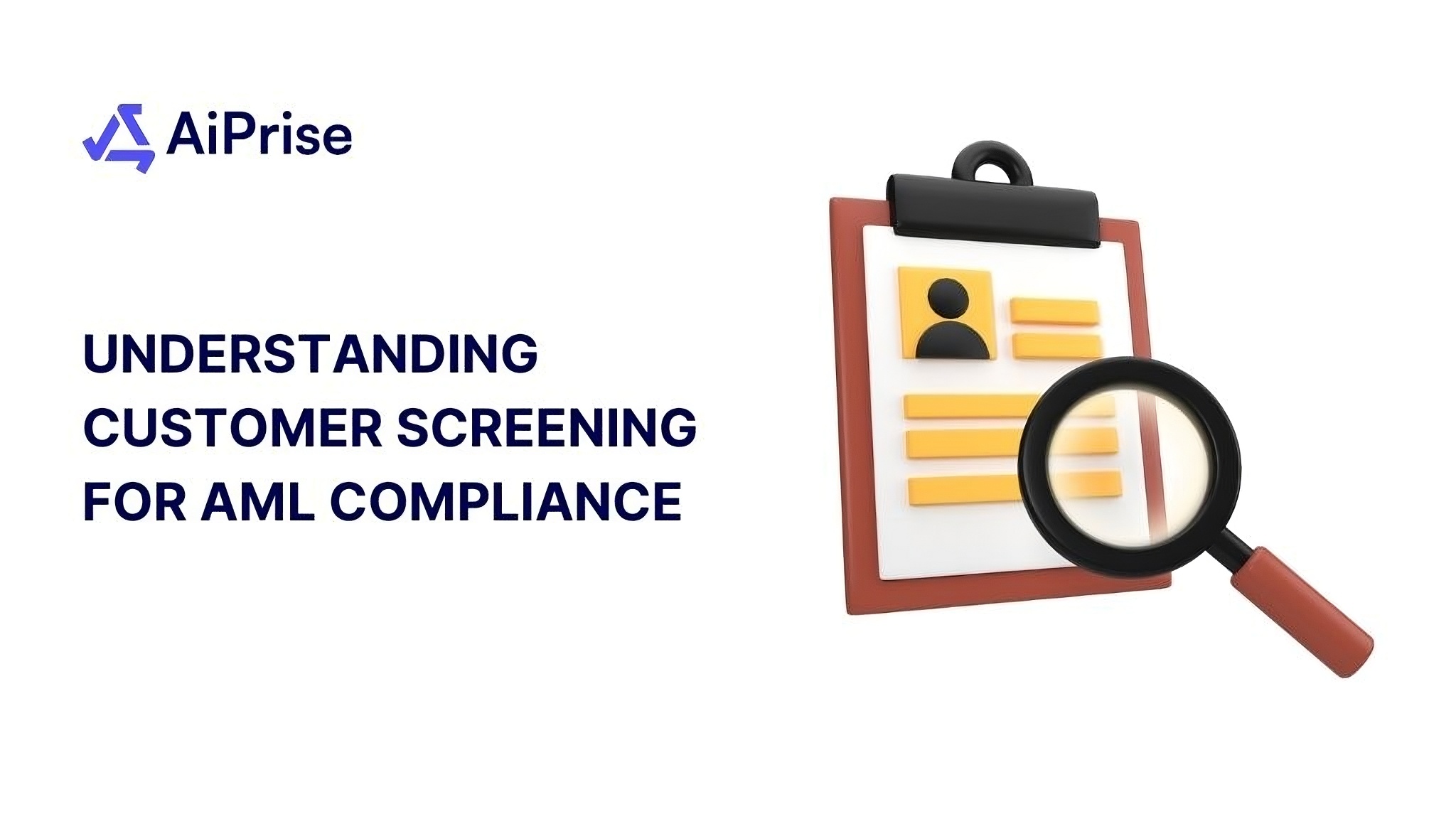

.png)
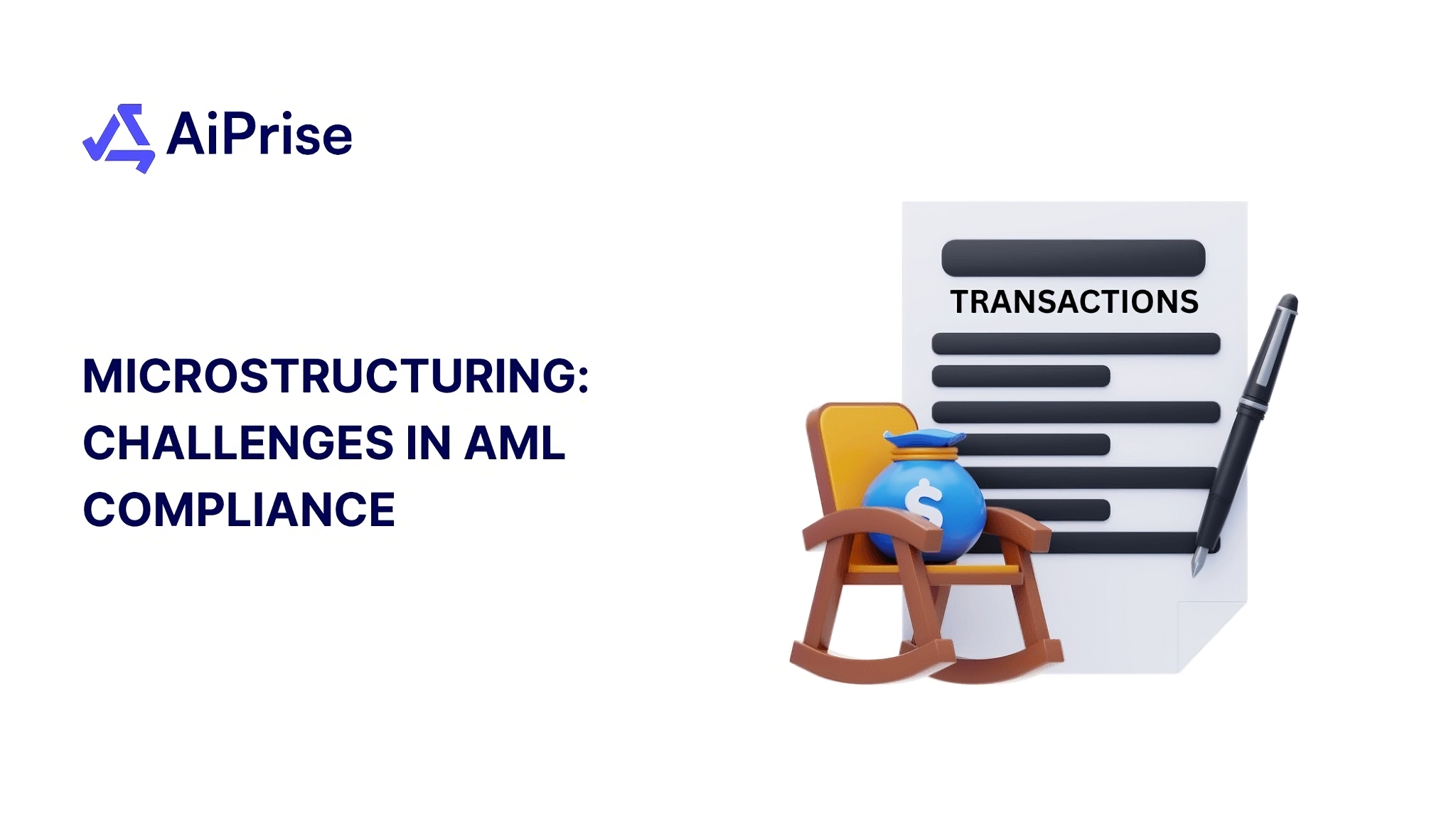

.png)
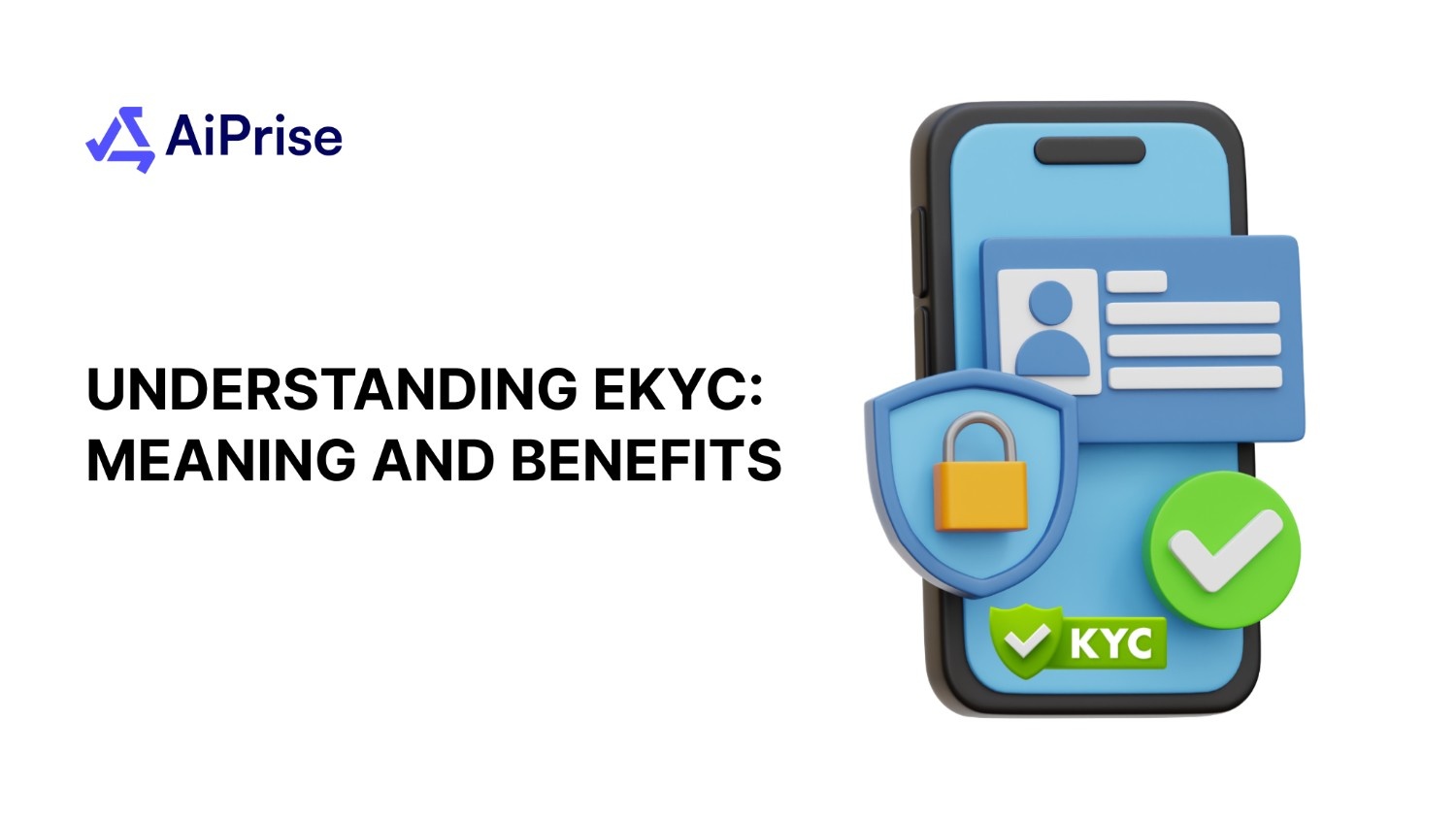
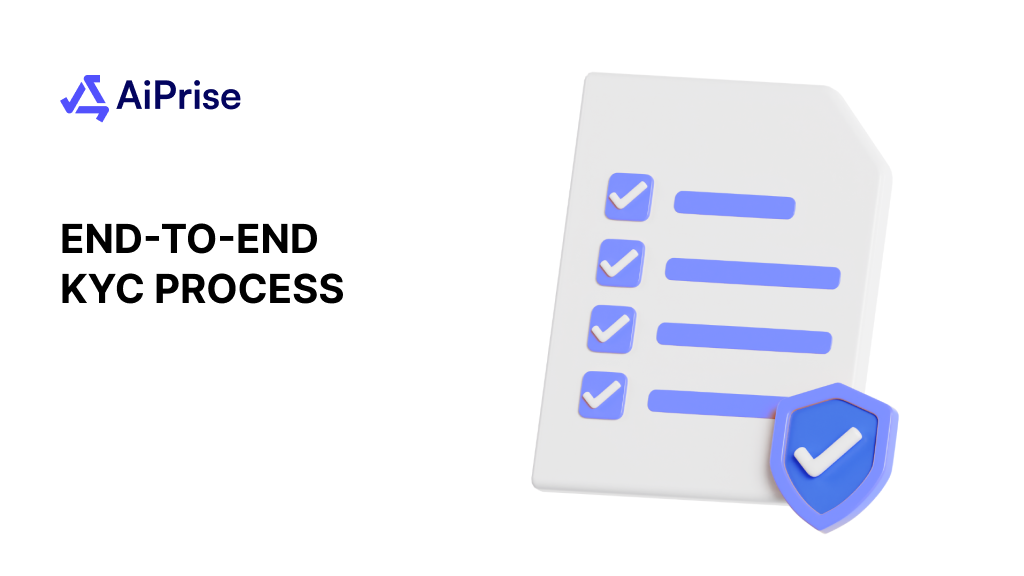

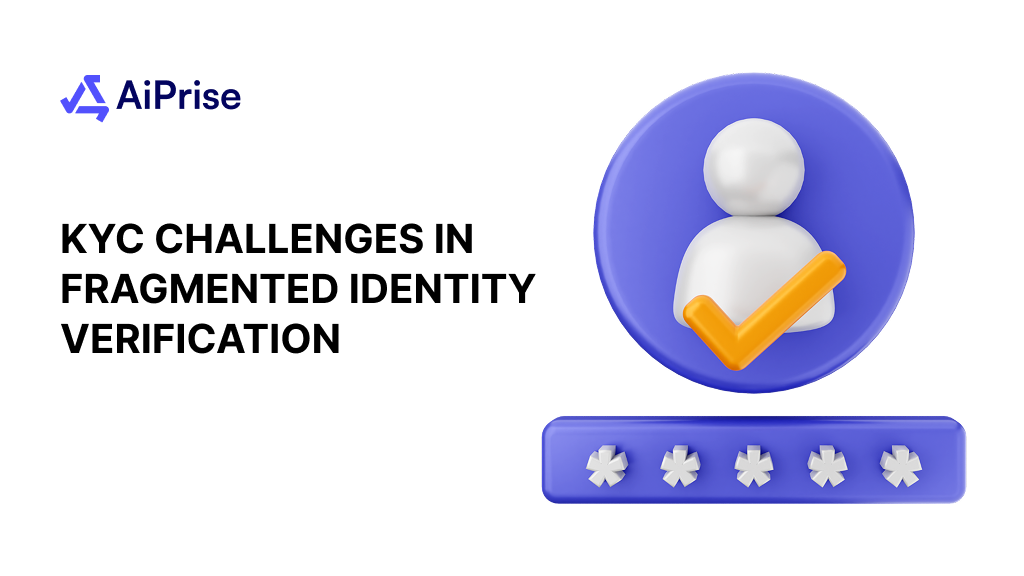












.png)





